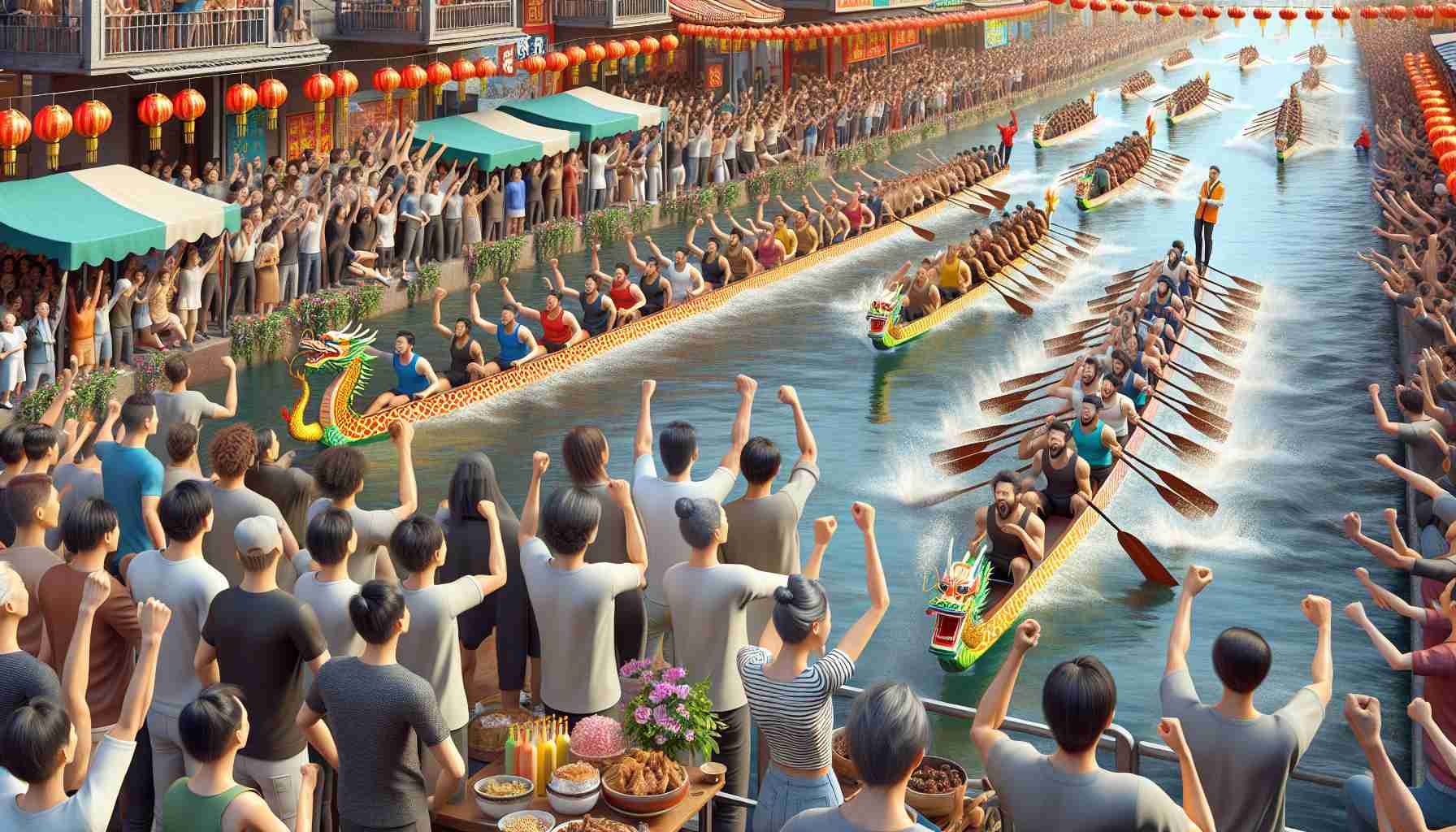China sees a revival in tourism during Dragon Boat Festival
The recent Dragon Boat Festival in China showcased not only a rich cultural tapestry but also a significant boost to the country’s economy, according to the latest figures from the Ministry of Culture and Tourism. Over the three-day holiday period, domestic travel escalated to 110 million trips, a 6.3% jump from the previous year, alongside a notable 8.1% rise in tourism-related spending, reaching over 40 billion yuan.
A buoyant “Dragon Boat Economy” underpins quality travel experiences
This surge reflects a diversification in consumer demands, with enhanced travel experiences underpinning what’s now deemed the “Dragon Boat Economy.” Various transportation hubs, including Yinchuan Railway Station, took the festive opportunity to optimize passenger flow and improve services, offering fast lanes and emergency amenities to travelers.
Beijing West Railway Station took festivities to another level with diverse cultural events, enriching passengers’ journeys with activities ranging from heritage markets to flash mob performances, all weaving traditional culture into the contemporary festive fabric. This narrative of a “spur-of-the-moment” journey during the festival days symbolizes the dedication and warmth of service industry professionals, catapulting travelers toward cherished destinations lined with poetry and distance.
Diverse activities strengthen demand for cultural and “Guochao” economics
The Dragon Boat Festival’s economic impact was further brightened by a suite of interactive activities, including heritage performances, markets, and sports events, which linked traditional culture with modern consumption patterns. A study by the China Tourism Academy revealed that 96.2% of travelers engaged with cultural activities during the festive period, emphasizing the dynamic energy of this economic sector.
Innovative tourism ventures like city walks inspired by Chinese aesthetics, national trend markets, and Hanfu-clad floral arranging sessions, merged traditional elements with modern lifestyle choices. The variety of available entertainment—ranging from ballets to music festivals—ensured that travelers’ diverse appetites for ‘travel, dine, shop, and entertain’ were well catered to.
Economic resilience showcased by the flourishing “Dragon Boat Economy”
The resilience of China’s economy has been reinforced by the “Dragon Boat Economy,” with consumption playing a vital role. Policies introduced earlier this year have bolstered market confidence and charted new successes in high-quality development, contributing to a continuous recovery in the consumer market.
Focusing on newfound consumer needs and trends, regions across China have explored unique local customs of the Dragon Boat Festival, promoting a flurry of festivities that underscore the vibrant potential and energy of the Chinese economy. It’s believed that by persevering and ‘rowing together,’ China’s ‘economic dragon boat’ will forge ahead, creating waves of robust development.
Important Questions:
1. How does the Dragon Boat Festival impact China’s cultural heritage?
The Dragon Boat Festival is a significant cultural event in China that reinforces the importance and appreciation of traditional values and heritage. Through the festival, China showcases its rich history and folklore, specifically the story of Qu Yuan, an ancient Chinese poet and statesman. This cultural reinforcement serves both as an educational tool and a means of preserving the nation’s history.
2. What challenges does the increase in tourism during the Festival pose to local communities and the environment?
Increased tourism can lead to overcrowding, strain on local infrastructure, and environmental degradation. Local communities could face challenges managing the inflow of tourists, preserving cultural sites, and maintaining ecological balance with the additional waste and resource demand that comes with higher visitor numbers.
3. How has the COVID-19 pandemic affected the Dragon Boat Festival and tourism in China?
The COVID-19 pandemic has had a significant impact on global tourism, including in China. Events like the Dragon Boat Festival had to adapt to restrictions, with many activities either limited, canceled, or moved online. This resulted in a decrease in tourism revenue but also led to innovative approaches to celebrate and honor cultural traditions under new circumstances.
Advantages:
– Boost to the Economy: The increase in tourism spending during the Dragon Boat Festival stimulates economic growth and supports local businesses.
– Cultural Preservation: The festival is an opportunity to celebrate and preserve Chinese cultural practices and introduces them to younger generations and tourists.
– Community Engagement: The event encourages community participation and unites people across various regions through shared cultural practices.
Disadvantages:
– Environmental Impact: The surge in tourism can lead to environmental stress, including pollution and waste management challenges.
– Commercialization: There may be an over-commercialization of the festival, leading to a loss of authenticity in cultural practices.
– Crowding and Over-tourism: Popular destinations may suffer from overcrowding, which can detract from the visitor experience and put pressure on local resources and infrastructure.
Key Controversies or Challenges:
– Balancing economic benefits with cultural integrity and environmental sustainability.
– Ensuring that tourism development related to the festival is inclusive, benefiting local communities and not just large businesses or tourism operators.
– Managing the potential spread of infectious diseases, especially in light of the COVID-19 pandemic and subsequent variants.
In relation to the topic, you may find more information on the official tourism website for China, which can offer insights into various festivals, cultural events, and travel advisories:
China National Tourism Administration
Please note that the link provided is subject to change and should be verified for its validity as URLs can change over time.
The source of the article is from the blog bitperfect.pe
